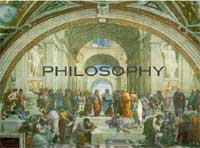This is a shelf course. A shelf course comprises a number of modules related to this broad area of study. Each module is a separate semester of study in this area and is offered in rotation. You can study TWO modules but you cannot study the same module twice.
|
Subject Area: Philosophy
Module: "Nietzsche and Philosophy"
As the author of provocative and puzzling statements such as "God is dead", "truth is a metaphor", "life is nothing but will to power", "the soul is just a word about the body", and the "social contract was written in blood", Nietzsche was arguably one of the most controversial thinkers of the modern era. This course will examine some of the more enduring ideas and controversial themes in Nietzsche's philosophy, including his ideas about language, truth, morality, justice, power, subjectivity and the body, history, and time. His philosophical method of 'genealogy' and its influence will also be examined. The impact of his philosophy on 20th Century thought will be explored by examining interpretations of his work by philosophers such as Deleuze, Derrida, Foucault, Heidegger, Irigaray, and Kofman.
Module: "Early Modern Philosophy"(Semester 1, 2011)
If there was ever a turning point in the history of philosophy -- a time after which nothing was ever quite the same -- we might point to Descartes's Meditations on First Philosophy. "First philosophy" is the Aristotelian term for metaphysics, and Descartes was rejecting centuries of philosophical inquiry that took its cue from Aristotle. This course examines how philosophers in the early modern era (roughly from Descartes to Kant) aimed to develop an entirely new approach to philosophy. Topics to be considered may include: the nature of mind; empiricism and rationalism; conceptions of "enlightenment"; freedom of the will; moral responsibility and agency. Authors to be considered may include: Descartes, Montaigne, Spinoza, Hobbes, Locke, Newton, Leibniz, Francis Hutcheson, Thomas Reid, Adam Smith, Edmund Burke, Rousseau, Hume, and Kant.

